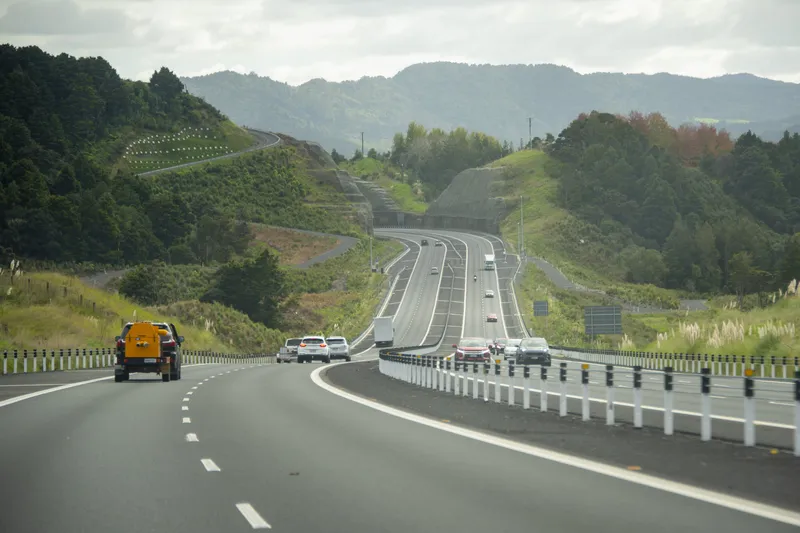Auckland, New Zealand, faces a US$9.5 billion transport funding gap to build the fully-integrated transport network set out in the 30-year Auckland Plan that includes new roads, rail, ferries, busways, cycle-ways and supporting infrastructure needed to cope with a population set to hit 2.5 million in the next three decades.
If Auckland opts to pay for the fully-integrated Auckland Plan, Auckland Council officials claim the transport network congestion is expected to improve by 20 per cent over the next 1
October 29, 2014
Read time: 2 mins
Auckland, New Zealand, faces a US$9.5 billion transport funding gap to build the fully-integrated transport network set out in the 30-year Auckland Plan that includes new roads, rail, ferries, busways, cycle-ways and supporting infrastructure needed to cope with a population set to hit 2.5 million in the next three decades.
If Auckland opts to pay for the fully-integrated Auckland Plan, Auckland Council officials claim the transport network congestion is expected to improve by 20 per cent over the next 10 years compared with where the city’s traffic problems are currently heading.
The higher level of transport performance will also deliver economic benefits to the Auckland region of US$1.3 billion in improved productivity and reduced costs.
An Independent Advisory Body (IAB) has worked out two ways Auckland could fund the fully-integrated transport system. One way is agree to increase petrol price by 1.2 cents a litre (in addition to increases signalled by the government) and share the rest of the cost equally amongst ratepayers. This would mean an increase in average general rates of around one per cent per year, in addition to increases signalled by the council, over the next ten years.
The other suggestion is to charge the motorway users an average user fee of US$1.6 depending the time of day or day of the week they use the motorway.
The government has criticised the proposals, however.
Transport Minister Simon Bridges said he was "very sceptical" about the options presented today by an Independent Advisory Body (IAB) to the Auckland Council.
Bridges said the Government was already spending about US$794 million a year on Auckland's transport network. "These projects will make a big difference to congestion in Auckland," he said.
"But we remain very sceptical about the options being presented today to Aucklanders and whether the programme proposed will further alleviate congestion. Aucklanders would need a very clear sense of what results they are getting and whether the new projects would deliver tangible value for money for commuters. They also need to have the discussion about how much more Aucklanders are prepared to pay for their transport."
The council says no decision will be made without extensive consultation with residents, which commences in January 2015.
If Auckland opts to pay for the fully-integrated Auckland Plan, Auckland Council officials claim the transport network congestion is expected to improve by 20 per cent over the next 10 years compared with where the city’s traffic problems are currently heading.
The higher level of transport performance will also deliver economic benefits to the Auckland region of US$1.3 billion in improved productivity and reduced costs.
An Independent Advisory Body (IAB) has worked out two ways Auckland could fund the fully-integrated transport system. One way is agree to increase petrol price by 1.2 cents a litre (in addition to increases signalled by the government) and share the rest of the cost equally amongst ratepayers. This would mean an increase in average general rates of around one per cent per year, in addition to increases signalled by the council, over the next ten years.
The other suggestion is to charge the motorway users an average user fee of US$1.6 depending the time of day or day of the week they use the motorway.
The government has criticised the proposals, however.
Transport Minister Simon Bridges said he was "very sceptical" about the options presented today by an Independent Advisory Body (IAB) to the Auckland Council.
Bridges said the Government was already spending about US$794 million a year on Auckland's transport network. "These projects will make a big difference to congestion in Auckland," he said.
"But we remain very sceptical about the options being presented today to Aucklanders and whether the programme proposed will further alleviate congestion. Aucklanders would need a very clear sense of what results they are getting and whether the new projects would deliver tangible value for money for commuters. They also need to have the discussion about how much more Aucklanders are prepared to pay for their transport."
The council says no decision will be made without extensive consultation with residents, which commences in January 2015.








